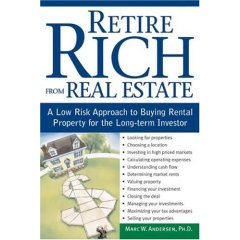Yesterday Mike posted his review of “Your Money and Your Brain”. Coincidentally I took the same book out of the library a while ago and had been meaning to write up my impressions about it, so now seems like the perfect time for us to have a “virtual book club”. Canadian Capitalist also wrote up his impressions about the book a while back, so that’s three perspectives you get.
In “Your Money and Your Brain” author Jason Zweig sets out to explain the psychology and neuroscience behind how we think about money. I’ve read similar books, such as Malcolm Gladwell’s Blink and Tipping Point, and I tend to like books about cognition.
Mixed in with investing anecdotes, the author visits researchers working in the field and participates in their experiments while explaining their findings to us. Early on he introduces the concept of our reflexive and reflective systems (dealing with emotions and complex problems respectively). Many of the ideas throughout the book discuss how the reflexive system trips us up in investing decisions (and Zweig’s advice is to let your reflective system take control by not rushing into any decisions, sleep on the issue and give your reflective system a chance to process it).
Because money is so closely tied up with all our biological rewards (you can buy any of them), investing decisions light up a number of primal areas in our brain. The obvious problem of our brains evolving to deal with short term threats like predators rather than long term threats like inflation plays into a number of the issues he discusses.
Overall, while I found the book interesting, I didn’t find much I could take away from it and apply to make myself a better investor (I definitely don’t agree witht he tagline “How the new science of neuroeconomics can help make you rich”). Just as I didn’t change how I live my life after reading Gladwell, I don’t think I’ll change how I invest after reading this book. “Don’t rush into investing decisions” is good advice, but I was hoping to get a little more than that out of a 340 page book. Perhaps it was unfair of me, but I was expecting more applicable techniques.
I also found the lack of bigger themes a bit disappointing. While its the nature of the work, little interesting tidbits from different reasearch programs, it very much comes across that way. It would have been nice if he could of put the different research results into a larger model but that wasn’t how the book presented its material.
While I can definitely see why Mike and the Canadian Capitalist enjoyed it so much, and I also found it a good read, I would only recommend it as a pleasure read, not necessarily as a book that will make you a better investor.
 photo by
photo by  What I liked
What I liked What I didn’t like
What I didn’t like After reading the reviews on
After reading the reviews on